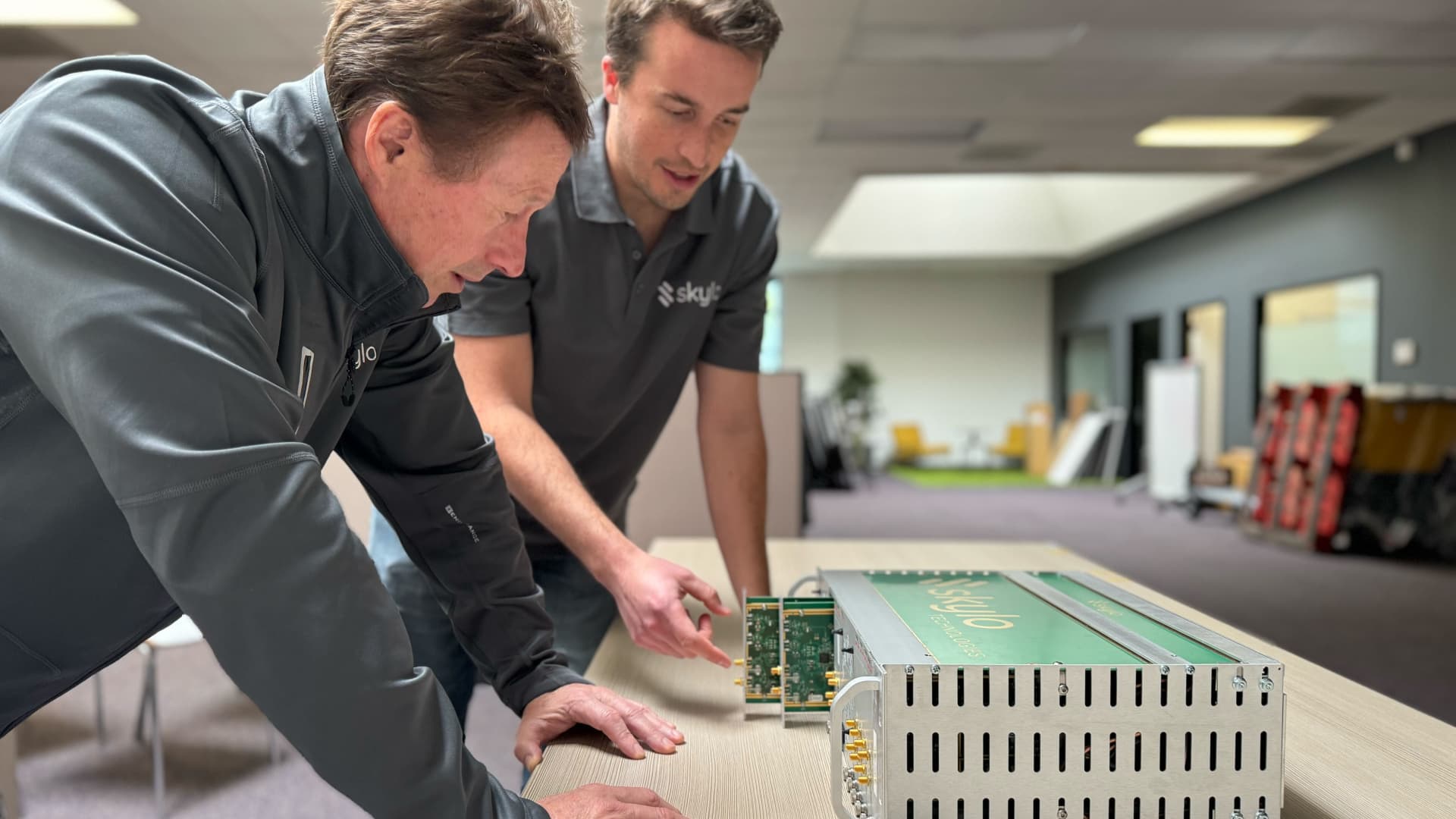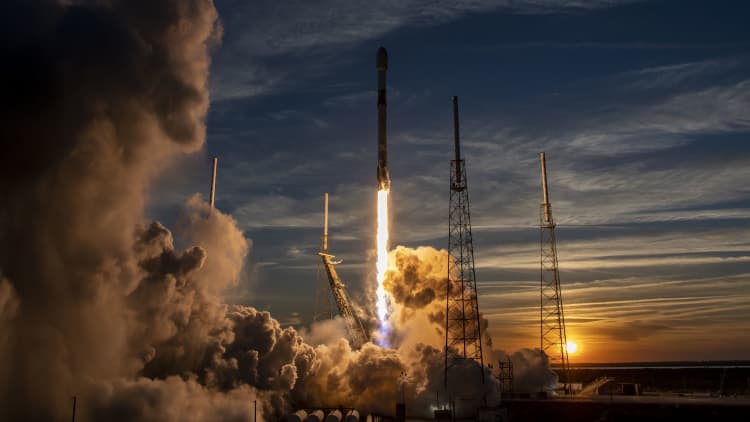
A Skylo base station in assembly.
Skylo Technologies
Silicon Valley space startup Skylo Technologies landed funding from the corporate venture arms of Intel, BMW and Samsung, as the company aims to bridge the gap between satellite and terrestrial communications.
Skylo raised $37 million through an equity round, the company told CNBC, that was led by Intel Capital and Innovation Endeavors and joined by BMW i Ventures, Next47, Samsung Catalyst Fund and Seraphim Space. The raise brings Skylo’s total equity fundraising to $153 million, with prior investors including SoftBank and DCM.
Founded in 2017 and headquartered in Mountain View, California, the company is pursuing the nascent “direct-to-device,” or D2D, satellite communications market.
But instead of building next-generation satellites, Skylo aims to provide a network to connect new devices — including low-bandwidth Internet of Things hardware as well as high-bandwidth smartphones — via existing satellites, but without extra antennas or bulky equipment.
“We want ubiquitous connectivity. We just don’t want extra hardware, because that adds complexity,” Skylo CEO Parth Trivedi told CNBC.
Sign up here to receive weekly editions of CNBC’s Investing in Space newsletter.
Trivedi said he believes his company can bring the standards-based networks of the telecom industry to the “walled garden” of proprietary satellite technology. His company is working to build a software infrastructure to certify chips and devices as capable of connecting to satellites in orbit.
That way, Trivedi sees Skylo operating as a “roaming partner” to existing cellular networks, effectively rubber-stamping and linking devices made by other connectivity players.
“You’re going to find that this approach is very, very scalable, because the carriers don’t have to change behavior, the users don’t have to change behavior, the satellite operators don’t have to change behavior, and regulators don’t have to change behavior,” Trivedi said.
The company has partnerships with chipset makers including Qualcomm, Samsung, MediaTek and Sony. Already, Skylo has certified a number of those companies’ IoT chips and is in the process of certifying more for wearable devices and smartphones.
“Older phones are not going to be certified on our network. It’s all the new devices that are coming out that have the correct chipset in them and then we work with the [original equipment manufacturer] to get that device certified … by the end of this year, most major smartphone modems will support the Skylo network,” Trivedi said.
Dave Johnson, a managing director at Intel Capital, explained that his fund’s backing is the result of its belief that Skylo is on the leading edge of the D2D satellite opportunity.
“They’ve really smartly used existing infrastructure wherever possible. They’ve also done a very good job of engineering the end-to-end solution, so that it’s seamless and easy for customers to adopt,” Johnson told CNBC.
The quartet of Skylo cofounders, from left: Chief Hardware Architect Andrew Kalman, CTO Andrew Nuttall, CEO Parth Trivedi, and Chief Product Officer Tarun Gupta.
Skylo Technologies
On the other side of Skylo’s network is the base stations that it installs at satellite operator’s gateways. Also known as ground stations, these are the large dish antennas that connect to the company’s satellites in space. Each Skylo base station is essentially a single server rack — which Trivedi said is “very capital efficient” — that the company installs at a gateway.
So far, Skylo has eight base stations installed at satellite gateways, with partners currently including Viasat, Ligado and TerreStar. Through those satellite operators, Skylo has begun initial service in the U.S., Canada and Europe.
A Skylo base station.
Skylo Technologies
“Sklyo is technically satellite agnostic, so as these different satellite providers come on and start supporting different things they may add other partners to their portfolio,” Johnson said.
Trivedi said that Skylo is generating revenue but declined to disclose details. Skylo has 52 employees and, in addition to its Mountain View headquarters, has offices in Finland and India.







